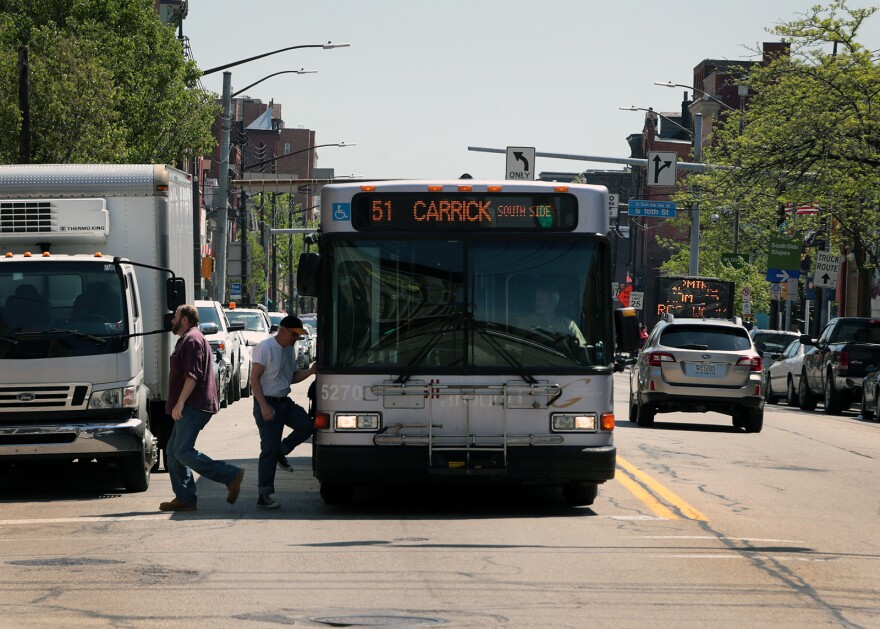The Port Authority of Allegheny County on Friday confirmed that it will receive nearly $100 million in federal funding for its Bus Rapid Transit project.
The long-awaited news broke Thursday evening when President Trump tweeted about “great things coming to a great State!”
.@USDOT is committing $99.95M to @PGHtransit in Pennsylvania to connect Pittsburghers to their two largest commercial employment centers through safe, quick transit service. Great things coming to a great State!
— Donald J. Trump (@realDonaldTrump) May 28, 2020
“We are pleased to learn such positive news for our bus rapid transit project,” said Port Authority spokesperson Adam Brandolph in an e-mailed statement. “The federal dollars are a significant portion of the overall funding plan. We look forward to discussing with federal transit officials next week.”
Port Authority CEO Katherine Kelleman was unavailable for an interview Friday, but Brandolph said the president’s social media announcement came as a surprise and that the agency had a call scheduled with the federal government for next week.
The $225 million BRT project is meant to provide speedy transit between the county’s two main job centers – Downtown and Oakland – and other residential neighborhoods, including Uptown, Highland Park, Greenfield and the eastern suburbs of Rankin, Braddock and Duquesne. Dedicated bus lanes along Forbes and Fifth Avenues will be paired with smart traffic signals that prioritize public transit vehicles.
“More importantly, [BRT will] free up resources to be able to provide additional service,” said Laura Weins, executive director of advocacy group Pittsburghers for Public Transit. “Free up operators, free up buses and free up money, essentially, to be reallocated toward other things.”
The remaining $125 million for the project is expected to come from county and city capital dollars, as well as other state and federal grants.
The agency first applied for federal funding through the Small Starts program in 2017, but was passed over in previous funding rounds despite receiving high marks from the U.S. Department of Transportation.
The news of the federal grant came the same day the Port Authority announced it would reinstate regular fare collection beginning on Monday, June 8. According to Weins, dozens of riders and transit advocates testified at Friday’s board meeting, some saying that it is inappropriate to charge full fares while many people are still reeling from the economic fallout of the coronavirus pandemic.
“We don’t understand why it is that the Port Authority board would think that people can afford to pay for transit,” Weins said, adding that most of the people taking public transit right now are low-income essential workers who have no other way to get to their jobs. “We are calling on the Port Authority to immediately institute a low-income fare program.”
Weins acknowledged that the transit agency is hemorrhaging money due to a massive ridership drop during the pandemic, but said that officials and board members should pursue other avenues of state and federal funding before “trying to collect fares off the backs of these riders.”
Port Authority’s Brandolph said the agency does not have any immediately plans to implement such a program.
“But we have made sure that such a program is included in the ongoing fare study that we commissioned last year,” he said. “The main issue in all of this is funding. We need to find the money to pay for the passenger revenue that would be lost. Otherwise, we could face the potential of having to reduce service to cover those fares. “




